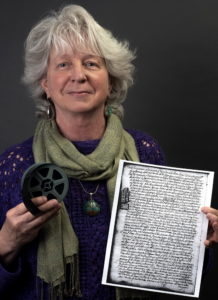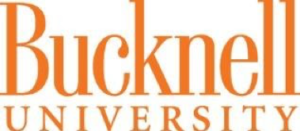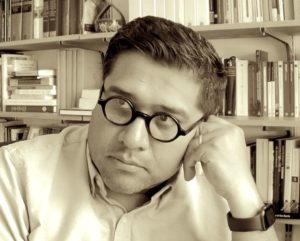
- This event has passed.
Decolonializing Imperialism I: Recovering Indigenous Voices in North America
July 6, 2021 @ 2:15 pm - 3:30 pm EDT

The Featured Image for this event page can be found here.
Moderator: Dr. R. A. Kashanipour, Scholar in Residence, Center for Latin American Studies, University of Arizona.
Dale S. Brenneman, O’odham-Piipaash Documentary History Project, Office of Ethnohistorical Research, Arizona State Museum, University of Arizona: “Truths Overlooked: Indigenous Voices from the ‘Pima’ Revolt of 1751-1752”
In late November 1751, several hundred O’odham (“Pimas”) rose up in coordinated rebellion. This insurrection caught the Spaniards entirely by surprise and resulted in the deaths of two Jesuit priests, some one hundred Spanish settlers, and an unknown number of O’odham before it was effectively quelled by Spanish forces in a decisive battle on January 5, 1752. Over the next three years, authorities’ investigations into the rebellion’s causes produced an enormous body of documentation that includes important legal testimonies from Native participants and observers. Yet the story of the revolt remains overwhelmingly one-sided, not only because it was recorded by the European victors but also because it has been re-told mostly by scholars of a Eurocentric mindset—with one notable exception—who have largely disregarded those Native accounts.
Admittedly, the Native testimonies in question require critical evaluation. Framed in response to Spanish questions according to Spanish agendas, they were recitations typically delivered through Spanish interpreters with imperfect understanding of the language they were translating. Further, Spanish scribes recording Native responses were more likely to summarize than write them down word-for-word. As such, these testimonies cannot be taken at simple face value, but neither should they be dismissed as wholly unreliable. Their limitations do not automatically obviate their informative value or their credibility as expressions of contemporary Native sensibilities.
This presentation discusses how the O’odham-Piipaash Documentary History Project endeavors to bring to light some of the “truths” overlooked by most accounts of this revolt. Using an “indio-centric” approach focused on the implications of Spanish colonization for Native people (Perez 2003), our project critically evaluates the Native testimonies by the same standards applied to other texts while taking into consideration knowledge gained from consultation with O’odham advisors and relevant scholarly disciplines.

Dr. Dale S. Brenneman heads the Arizona State Museum’s Office of Ethnohistorical Research at the University of Arizona. Her research explores Native American experiences of Spanish colonialism and Mexican settlement during the seventeenth through mid nineteenth centuries. She currently directs the O’odham–Piipaash Documentary History Project, involving collaborative consultation on the Spanish documentary record with scholars and advisors from the Tohono O’odham Nation Cultural Center and Museum and Tohono O’odham Community College. Dr. Brenneman is a co-editor of Moquis and Kastiilam: Hopis, Spaniards, and the Trauma of History, Volume I and II (University of Arizona Press, 2015, 2020) and is editor of the SMRC Revista, published by the Southwestern Mission Research Center.
Obed Lira, Bucknell University: “The Florentine Codex Project: A Decolonial Approach to Digital Editing”

The Florentine Codex Project is a collaboration between researchers from Bucknell University and the Poetic Media Lab at Stanford University. The project is mainly focused on the creation of a digital edition of the monumental sixteenth-century work entitled Historia general de las cosas de Nueva España (General History of the Things of New Spain), also known as the Florentine Codex. This encyclopedic work—compiled over many years by a Franciscan friar and his native collaborators—sought to capture the language and culture of the indigenous Nahua peoples with the ultimate end of enhancing evangelization efforts. Often hailed as an early instance of ethnography and as one of the most thorough accounts of a non-Western culture ever produced, this talk will introduce this important source, and discuss some of the ways in which this digital project challenges current research paradigms around colonial documents of this kind, offering instead a decolonial approach to digital editing, and thus a decolonial approach to reading an ever-growing digital archive of colonial documents in Latin America.

Obed Lira is Assistant Professor of Spanish and Latin American Studies at Bucknell University. His scholarship focuses on Colonial Latin American Literature, primarily 16th and 17th centuries, Classical Nahuatl literary and visual culture, and postcolonial studies. He is currently spearheading the Florentine Codex Project, a collaborative Digital Humanities project that consists of a decolonial, scholarly digital edition of Bernardino de Sahagún’s Historia general de las cosas de Nueva España. Prof. Lira is also completing a book project that centers on the emotive rhetoric of humanitarian friar Bartolomé de las Casas.
This session will not be recorded.